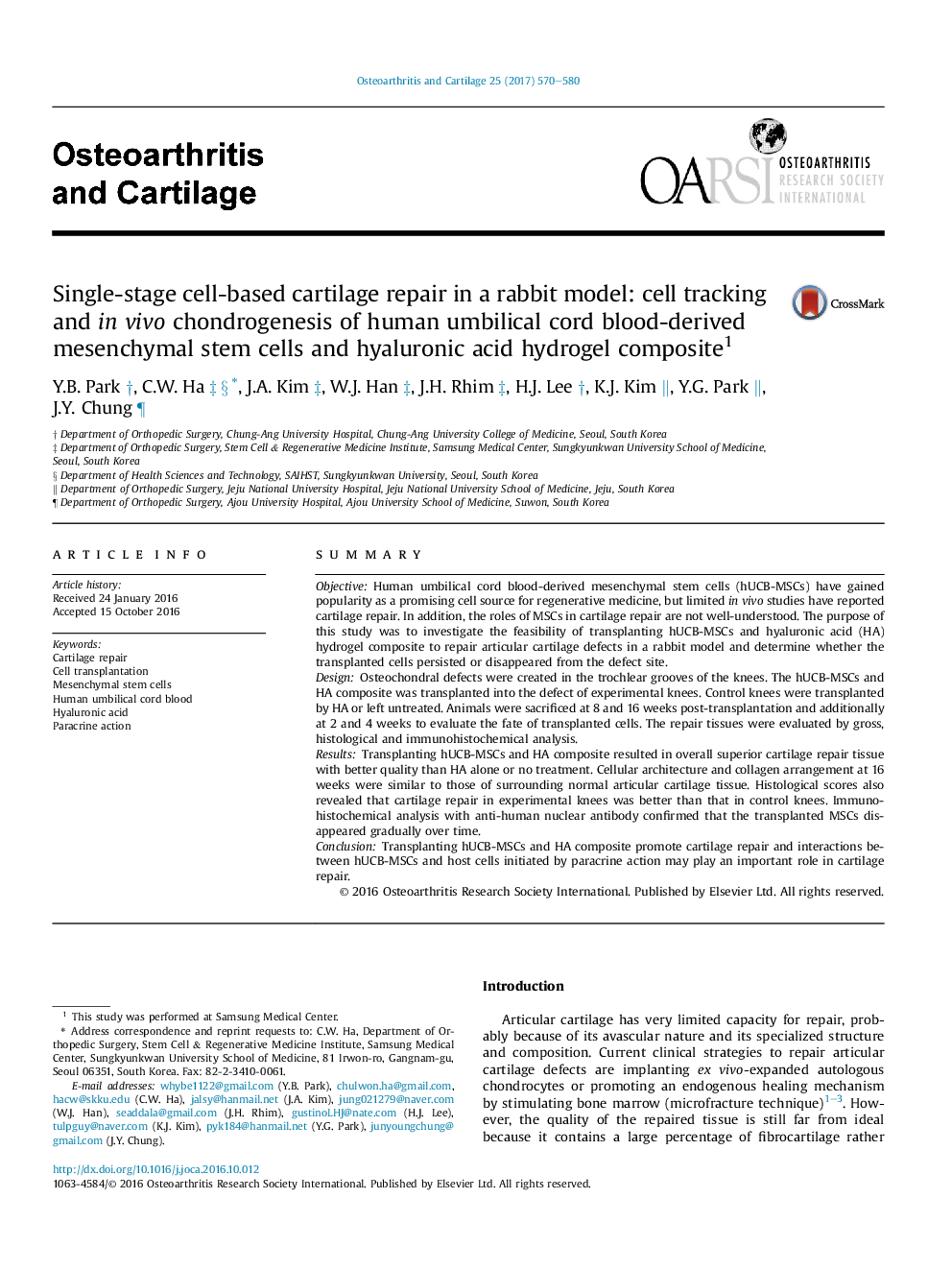| Article ID | Journal | Published Year | Pages | File Type |
|---|---|---|---|---|
| 5669219 | Osteoarthritis and Cartilage | 2017 | 11 Pages |
SummaryObjectiveHuman umbilical cord blood-derived mesenchymal stem cells (hUCB-MSCs) have gained popularity as a promising cell source for regenerative medicine, but limited in vivo studies have reported cartilage repair. In addition, the roles of MSCs in cartilage repair are not well-understood. The purpose of this study was to investigate the feasibility of transplanting hUCB-MSCs and hyaluronic acid (HA) hydrogel composite to repair articular cartilage defects in a rabbit model and determine whether the transplanted cells persisted or disappeared from the defect site.DesignOsteochondral defects were created in the trochlear grooves of the knees. The hUCB-MSCs and HA composite was transplanted into the defect of experimental knees. Control knees were transplanted by HA or left untreated. Animals were sacrificed at 8 and 16 weeks post-transplantation and additionally at 2 and 4 weeks to evaluate the fate of transplanted cells. The repair tissues were evaluated by gross, histological and immunohistochemical analysis.ResultsTransplanting hUCB-MSCs and HA composite resulted in overall superior cartilage repair tissue with better quality than HA alone or no treatment. Cellular architecture and collagen arrangement at 16 weeks were similar to those of surrounding normal articular cartilage tissue. Histological scores also revealed that cartilage repair in experimental knees was better than that in control knees. Immunohistochemical analysis with anti-human nuclear antibody confirmed that the transplanted MSCs disappeared gradually over time.ConclusionTransplanting hUCB-MSCs and HA composite promote cartilage repair and interactions between hUCB-MSCs and host cells initiated by paracrine action may play an important role in cartilage repair.
